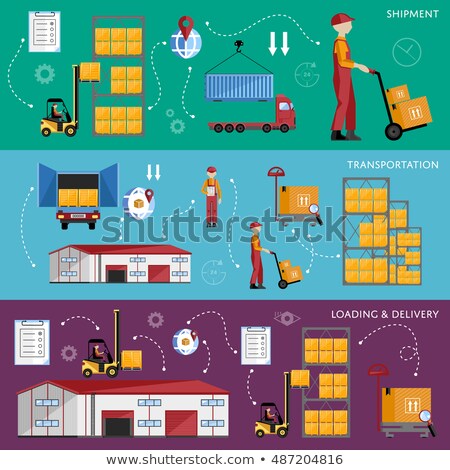

To date, thousands of professionals have passed the PMP exam using my resources. It is a request to a seller to provide voluntary information to buyers and is not legally binding. The RFQ includes a statement of work to help the contractor to provide a price. For instance, if a buyer lacks the information needed to proceed with construction, they will raise an RFI expressing concerns and get helpful responses. After reviewing the similarities between RFIs and RFPs with the team, AJ moves on to identifying the differences.
They are a Certified Nonprofit Professional from the Nonprofit Leadership Alliance. They have taught in the undergraduate and graduate schools at North Park University and Misericordia University . Stay up-to-date with the latest industry trends and trade contractor stories.
The organization issuing an RFP may also invite prospective bidders to a pre-bid conference so they can ask questions about the solicitation document and learn more about the project. Using RFQs and RFPs ensures you get competitive bids from qualified vendors and find the best option for your budget while keeping your project on schedule. An RFP should include detailed information about the project scope, objectives, timeline, budget, and any other requirements the vendor or contractor must meet to be considered. Are vendors likely to be able to provide enhanced or added services that the company can use now or in the future? If so, it is important that the company learn details about the vendor’s full array of offerings, so an RFI is used.
Sealed bid
A Request for Information is used to gather information from suppliers, whereas a Request for Proposal is used to solicit proposals from suppliers for a possible contract. A Request For Quotation is a method where an acquiring organization solicits bids and price quotes from suppliers and contractors for a project or task. You must take note that an RFQ is not binding as it is not an offer to purchase products or services. Also, businesses usually design RFQs for generic products in which the quantity needed is known, and RFPs are for unique, niche projects where quantities and specifications are unknown. A request for proposal is used by contractors to gather information from potential vendors about their suggested construction process. A contract will only be created once the company sends an offer and the supplier accepts it.

The response from the seller is much more extensive, as it allows the seller to highlight what they have to offer with details about their products and services. At this point in their process, AJ and his team are best prepared to provide a brief request and learn what the sellers can offer. Writing an effective RFQ will help your team get the perfect products request for information proposal and quotation is called as or services at competitive prices from reliable vendors. Empower your staff to streamline workflows, find the best vendors, and delight your customers with a versatile professional services platform like Wrike. An RFQ in project management is a written document inviting potential vendors to supply essential products or services for project completion.
This means that as a small business owner, you must clarify what clients want when they ask for one of these documents. People use the terms, bid, quote, proposal, and estimate interchangeably. Indeed,a forum discussion on SitePointhighlights this challenge when using these terms. To streamline the request for information proposal and quotation is called as, it may be necessary to run a pre-selection event before sending your RFQ to a closed list of approved bidders.
The final contract is created once the buyer sends an offer and the vendor or supplier accepts it. For example, if our owner decided to buy the blocks for the wall himself, he would send an RFQ to a few block suppliers requesting the cost for blocks to complete the wall. He would need to specify which blocks he wanted to use and the size of the wall. The suppliers would send over their quotes, and the owner would purchase the block based on the best price. While both RFQs and RFPs are official contract documents essential for construction project management, they have some critical differences. Many companies bring in outside vendors when they have large-scale projects.
The organization provides global research and technical services to government and commercial clients. The importance of the RFQ is that it allows the buying organisation to compare prices from different potential suppliers and to select the one that offers the best value for money. RFQs are typically used when a company is looking for the supplier who can provide the required product or service at the lowest cost. A request for information is used when the owner wants several contractors to provide potential solutions, while a request for proposal is used in a bidding process to solicit offers for a project.
Request For Quotation (RFQ)
Conducting reverse auctions online can give quick results besides being competitive for companies. However, while the supplier selection process seems easier to navigate, buyers may miss out on cost savings due to the limited competition. All these documents help buyers gain more information from their prospective vendors.
- Going from learning about an industry, segment, or space, to signing a contract with a preferred vendor can be complex; fortunately, using the right documents helps significantly.
- The suppliers would send over their quotes, and the owner would purchase the block based on the best price.
- A request for proposal, as noted above, announces a specific project that is planned and solicits contractors capable of getting the job done.
- The alternative to an RFP is a less formal process requiring a project manager to research and identify potential vendors for a project.
- Reverse auctions can be a good option if cost is the primary criterion for awarding a contract.
Remember, the response provided by the vendor is a quote, not a formal agreement. Then, assuming all goes well, you will receive the vendor’s acceptance. A reverse auction asks vendors to supply their lowest offer and the cost decreases as the auction goes on. The reverse auction may use a secondary step if an RFQ is issued, but no vendor meets the price target.
There usually isn’t a design or any documents other than a brief description of the problem. The request will include a few open-ended questions intended to get information from a potential vendor. There are key questions that belong in your SD-WAN request for proposal. In the construction industry, RFPs can initiate an entire project, including its design, material elements, and delivery method.
Request for Information vs. Request for Proposal
In construction, the RFP process will typically involve some prequalification of the contractor to determine their ability to get the job done. Compared with RFIs, RFPs have more detailed questions about the contractor’s experience and skills, and responses are sometimes scored to help owners choose the best one for their project. Contractors may be asked to provide references, list past projects, or provide bios or resumes for their main staff. An organization may also release an RFP to boost competition to drive down the cost of a solution.
As indicated by its name, an RFP focuses on how the vendor proposes they meet the need or solve the problem by using its products and/or services. For AJ and his team, the goal is to meet a need, so in terms of focus, at some point an RFP should be a part of their process. Most businesses use an RFQ when they know exactly what they’re looking for, the budget they want to spend, and are ready to make a purchase. Quotes are the most precise method to present an offering to potential customers. Similarly to how “quoting” someone is an exact copy versus paraphrasing, creating a quote in construction has a similar meaning. Quotes are much more precise than estimates, which are an educated guess of how much a project would cost.
What is a request for proposal (RFP)?
It also offers a degree of security as a company will receive bids only from vendors it prefers. On the other hand, because RFQs reduce the amount of competition, a company may miss receiving the lowest-available price or learning about new high-quality vendors. An RfQ allows different contractors to provide a quotation, among which the best will be selected. It also makes the potential for competitive bidding a lot higher, since the suppliers could be quite certain that they are not the only ones bidding for the products. While timelines vary across projects, an average request for quote timeline ranges from six to ten weeks.
RFQ vs RFP: What’s the difference?
It generally involves multiple stakeholders and requires a greater focus on vendor risk management. The RFI is a great tool to use when you need more information to help you understand the marketplace and, at a later point in time, create an RFQ or RFP for the products/services you want to buy. You can also use it to stimulate the supply market and to condition prospective suppliers about the potential opportunity that may exist. As AJ and his team proceed, it is clear that they have varying levels of experience in this process.
If you have limited procurement experience from either the buy or sell side, you’re going to see diminishing returns. If the product is only available in its finished form, then the only factors a company will likely consider are price, quality of service, and delivery abilities . If the product or service is simple, such as printer paper or garbage removal, then a simple process of RFQ is sufficient. Explore requests for information , requests for proposals , and requests for quotations . To explore how an RFP management system could improve your procurement process, schedule a demo.
Complete the summary by extending an invitation to vendors to send in their bid responses. Many companies conduct reverse auctions when they fail to find vendors. Reverse auctions can be a good option if cost is the primary criterion for awarding a contract.

